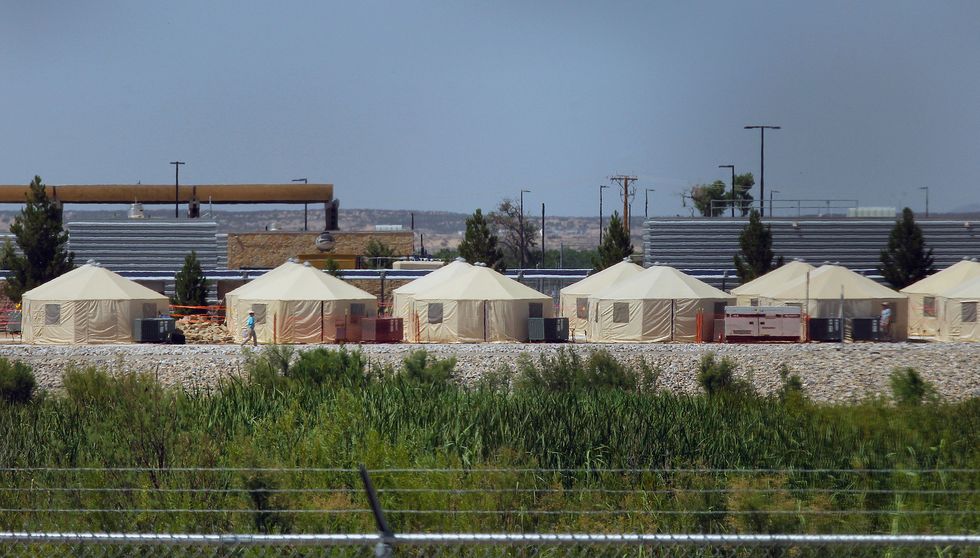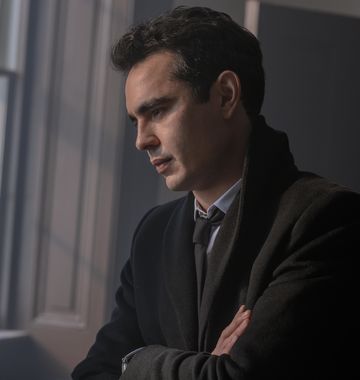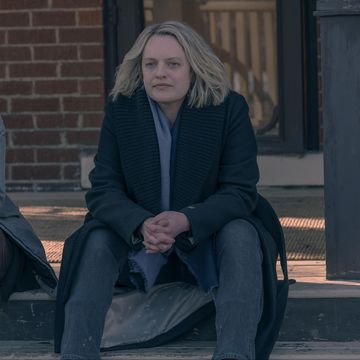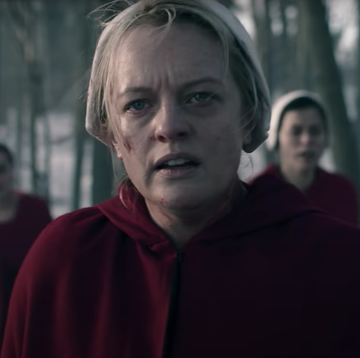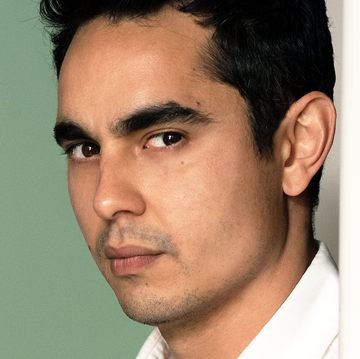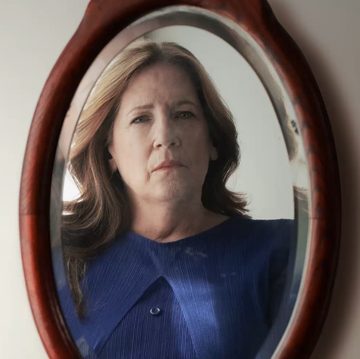Episode 10 of The Handmaid’s Tale was released last Wednesday, the day after news broke that "tender age" shelters were housing child migrants forcibly separated from their parents at the U.S.-Mexico border—Trump’s response to illegal immigration. In an eerie parallel to reality, a separated mother and daughter tearfully reunited for a few brief moments in this episode before being violently torn apart again.
As news channels broadcast the cries of children taken from their parents' arms, it's hard not to think of Gilead. We’re appalled at the dystopian nation depicted on the show, yet outside the bounds of our living rooms, the same devastation insidiously unfolds under the guise of law and order.
In The Handmaid’s Tale, adulterers, "gender traitors" and other "sinners" of the Biblical sort are punished, their infants taken from them and given to Gilead’s elite. In the real-world, "sinners"—people trying to immigrate to the U.S.—are handled in much the same way, their children inhumanely stripped from them.
"Our nation is turning into a country of chaos, one that looks less like freedom and more like fascism every day."
In the tender age shelters that have appalled much of America, these children now exist in a world that is foreign—both literally and figuratively. In some cases, the young kids don't even know their own name; it's been reported the shelters do not identify them with bracelets or name tags. These children have been stripped of their identity, and despite Trump signing an executive order on June 20 that’s meant to end the separation of families at the border, thousands of children have little hope of being reunited with their parents. Our nation, currently led by men and women who subscribe to ideology based on nationalism and xenophobia, is turning into a country of chaos, one that looks less like freedom and more like fascism every day.
Much of The Handmaid’s Tale centers around how the United States became the extremist state of Gilead, a country enforcing hierarchal servitude in the wake of a fertility crisis. The solution for Gilead's infertility quite literally lies within the Handmaids, fertile women who are forcibly assigned to the homes of the Gilead elite and raped monthly in a “ceremony” where conception is the goal. The basis for this fascism lies in the government’s obsession with controlling individuals and families in an effort to make the country as “pious” as possible.
Much like Gilead looks at its Handmaids as less than human, our government looks at undocumented immigrants as lacking integrity. Lost in this hypocritical judgement is the idealistic vision of America that drives families to seek a new home here—"land of the free and home of the brave"—in the first place. Without that dream, we lose the democracy inherent in our nation’s mythology.
We were faced with an emotionally grueling scene echoing the real world in The Handmaid’s Tale this week, when Commander Waterford allows June to visit her daughter, Hannah, at an undisclosed location. June is driven to an abandoned estate, where she meets Hannah alongside the child’s Martha, under the watch of a Gilead guard. At first, we think Hannah, who has been renamed Agnes by her new family, doesn’t remember June—but she does. She asks her mom longingly, "Did you try to find me?" The next few minutes of the episode are agonizing, with mother and daughter conveying how desperate they are to be together again despite knowing that cannot happen. In fact, Hannah asks June if she will ever see her again. While we all hope the answer is yes, the odds aren’t in June’s—and perhaps more importantly, Hannah’s—favor.
Before the episode fades to black, we see June abandoned in the unknown location, with no indication of when she’ll receive help, or if it will come at all. The episode, from start to finish, paints a picture of just how deceptive freedom can seem: June, away from the watch of guards and left to her own devices, is theoretically free. Yet without support or resources, that freedom is more of an elusive fantasy than anything else.
We all want agency and autonomy, and in times of desperation, we will go to the ends of the earth to find it. We particularly hope for freedom for our children, for they are our future. But a future requires a past, and for the children of Gilead—and the migrant children stripped of their family—their past is grounded in forced erasure.
The Handmaid’s Tale isn’t just a captivating dystopian series to cozy up to once a week. It’s a chilling look in the mirror. A bleak world divided into Wives and Handmaids and Marthas, it seems, isn’t so far away. It starts with one policy and leads to another, as fascism slowly seeps into the fabric of our nation. Before you know it, we are subjected to an existence that is defined not by freedom, but by the desire for it. Before you know it, we are Gilead.

